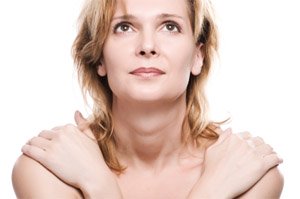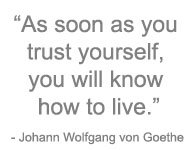Estrogen and Hair Loss
What is the relationship between estrogen and hair loss?
How can you stop hair loss?
Here's a hair-loss treatment that works FAST. (affiliate link)
Hair loss and thinning hair are common menopause and pre menopause symptoms.
You may notice that you don't have to shave your legs as often as you used to. (If that's the case, you are a lucky woman!)
But, many others experience the thinning and loss of hair on their scalps as well as thinning pubic hair.
Knowing that other women are experiencing hair loss can be comforting, but it doesn't make up for the loss of self esteem that you can experience while loosing your hair.

Hair is such an important part of a woman's identity that it is no wonder many women begin to feel depressed when they see that they are loosing hair.
So, why is this happening?
Testosterone and Hair Loss
Before we get to estrogen and hair loss, we need to talk about another hormone, testosterone.
While both men and women have testosterone in their bodies, men have much more testosterone than women, and they experience the effects of testosterone more than women.
Unfortunately for men, testosterone is responsible for the majority of non-traumatic hair loss.
To be more specific, something called DHT (dihydrotestosterone) is the cause of hair loss. DHT is produced from testosterone and causes alopecia androgenica, more commonly known as male pattern baldness.
In men, this results in loosing hair near the forehead first, and slowing loosing hair toward the back of the head until they are bald.
In women, alopecia androgenica results not in going bald, but in an overall thinning of hair.
Estrogen and Hair Loss
While testosterone can cause hair follicles to stop making hair, estrogen helps to make scalp hair grow.
Estrogen also reduces body hair, which is why women have less body hair than men.
The estrogen in a woman's body blocks some of the effects of testosterone (like hair loss).
As our levels of estrogen drop during menopause, our bodies see more of these effects because there is less estrogen to block our body's testosterone.
So what is the relationship between estrogen and hair loss? A low estrogen level can lead to thinning hair in menopausal women.
Treatments to Stop Hair Loss
Hair loss is a tricky thing to remedy. It can be a time consuming and emotional process, but some women have found these tips helpful.
Increase Estrogen
Since a low level of estrogen is the cause for many women's thinning hair, try increasing your estrogen level with estrogen rich foods or natural supplements.
This is a good treatment if hormones are indeed the cause of your hair loss. But, you could be experiencing thinning hair from a medication that you are taking or from thyroid disease. See your doctor to be sure of the cause of your thinning hair.
Drugs from Your Doc
If you are more interested in trying a drug prescribed from your doctor, Minoxidil is the only drug approved for women's hair growth. You apply it to your scalp twice a day, and in 4 months 20-25% of women see results.
Your doctor can also prescribe drugs that will block androgens, the male hormones responsible for your thinning hair.
Try a New Do
Another possible solution? This is a great excuse to go to your hair stylist and get a new style! If your hair is thinning, layers work really well to hide your thin hair. (And they look lovely as well!)
Find Support
However you decide to treat your thinning hair, seeking the support of a friend can help you to deal with the emotional side of hair loss.
If you're a little shy about talking to a friend, this site offers lots of good information and a supportive community focused on women with hair loss.
Return to Pre Menopause Symptoms
Return from Estrogen and Hair Loss to Estrogen Source Homepage
Copyright © 2009- 2015 Estrogen Source. All Rights Reserved.
The information on this site is my opinion only.
Consult your doctor before acting on any information found here.
Click here to read our Privacy Policy and Disclaimer.



